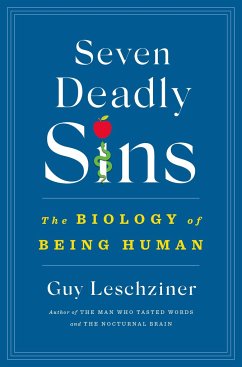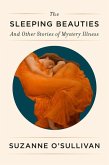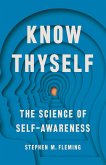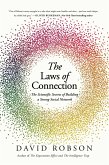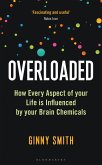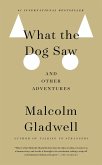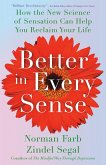"Seven Deadly Sins will explore the underlying nature of the seven deadly sins, their neuroscientific and psychological basis, and their origin in our genes. Gluttony. Greed. Sloth. Pride. Envy. Lust. Anger. These are The Seven Deadly Sins, the vices of humankind that define immorality. But do these sins really represent moral failings, or are they simply important and useful biological functions that humans need to survive? Instead of being acts of immorality, are they really just a result of how our bodies, our psyches, and our brains in particular, are wired? In Seven Deadly Sins: The Biology of Being Human, Guy Leschziner, a professor of neurology, dares to turn much of what society thinks of as morality on its head and to ask these controversial questions. Leschziner takes readers on an exploration of the Seven Deadly Sins as he looks at their neuroscientific and psychological bases, their origin in our genes, and, crucially, how certain medical disorders may give rise to them. He introduces us to patients whose physical and psychological conditions have given rise to behaviours that have for centuries been labelled as "sin" and how these behaviours might actually be evolutionary imperatives that preserve the tribe and ensure the wellbeing of our societies. In Seven Deadly Sins, a book certain to cause debate and raise controversy, Guy Leschziner, a writer who has explored the mysteries of our sleeping brains and the odd crossed wires of our five senses, asks whether these traits truly represent sin, or simply reflect our intrinsic drive to survive and thrive"--
Hinweis: Dieser Artikel kann nur an eine deutsche Lieferadresse ausgeliefert werden.
Hinweis: Dieser Artikel kann nur an eine deutsche Lieferadresse ausgeliefert werden.
'The London neurologist Leschziner sensitively explores the genetic, neurological and psycholo`gical basis for human failings such as wrath, sloth and gluttony. Along the way we meet patients - the outsized recluse who became wedged in his shower cubicle, the soldier who couldn't stop talking about sex after a head injury - who reveal how medical conditions are often lashed to the mast of morality' Financial Times
'An elegantly argued book that does far more than just lift the curtain on what occurs between a neurologist and his patients... As a reader, you feel privileged to be allowed to sit in on his study' Spectator
'A profoundly humane book... Leschziner writes with great empathy and compassion' Guardian
'Thought-provoking, fascinating, compelling - Leschziner delves into the psychology, psychiatry and neuroscience of harmful behaviours and asks: can we ever really be free to choose how we behave? His thesis is compelling: if we can understand ourselves better, and particularly the darker aspects of our psychology, we can hope to make the world a better place' Professor Alice Roberts, author of Crypt
'An erudite and case-packed study of 'wrath, gluttony, greed, sloth, pride, envy, lust and anger', the supposed 'Seven Deadly Sins' that define human vices' Independent
'Guy Leschziner is the heir to Oliver Sacks' David Baddiel
'A captivating examination of the neurological basis for 'bad' behaviour... educates as much as it entertains, turning complex neuroscientific topics into fodder for cocktail-party conversations... Outstanding'Nature
' A masterly, original and highly accessible account of the neurological origins of the seven perennial temptations, with ample case studies. His conclusion is wise and compassionate, and his route to it is replete with fascinating detail' Oliver Kamm, author of Mending the Mind
'A riveting exploration of the science behind why humans engage in behaviour that harms themselves and others' Jonathan Kennedy, author of Pathogensis
'An elegantly argued book that does far more than just lift the curtain on what occurs between a neurologist and his patients... As a reader, you feel privileged to be allowed to sit in on his study' Spectator
'A profoundly humane book... Leschziner writes with great empathy and compassion' Guardian
'Thought-provoking, fascinating, compelling - Leschziner delves into the psychology, psychiatry and neuroscience of harmful behaviours and asks: can we ever really be free to choose how we behave? His thesis is compelling: if we can understand ourselves better, and particularly the darker aspects of our psychology, we can hope to make the world a better place' Professor Alice Roberts, author of Crypt
'An erudite and case-packed study of 'wrath, gluttony, greed, sloth, pride, envy, lust and anger', the supposed 'Seven Deadly Sins' that define human vices' Independent
'Guy Leschziner is the heir to Oliver Sacks' David Baddiel
'A captivating examination of the neurological basis for 'bad' behaviour... educates as much as it entertains, turning complex neuroscientific topics into fodder for cocktail-party conversations... Outstanding'Nature
' A masterly, original and highly accessible account of the neurological origins of the seven perennial temptations, with ample case studies. His conclusion is wise and compassionate, and his route to it is replete with fascinating detail' Oliver Kamm, author of Mending the Mind
'A riveting exploration of the science behind why humans engage in behaviour that harms themselves and others' Jonathan Kennedy, author of Pathogensis

